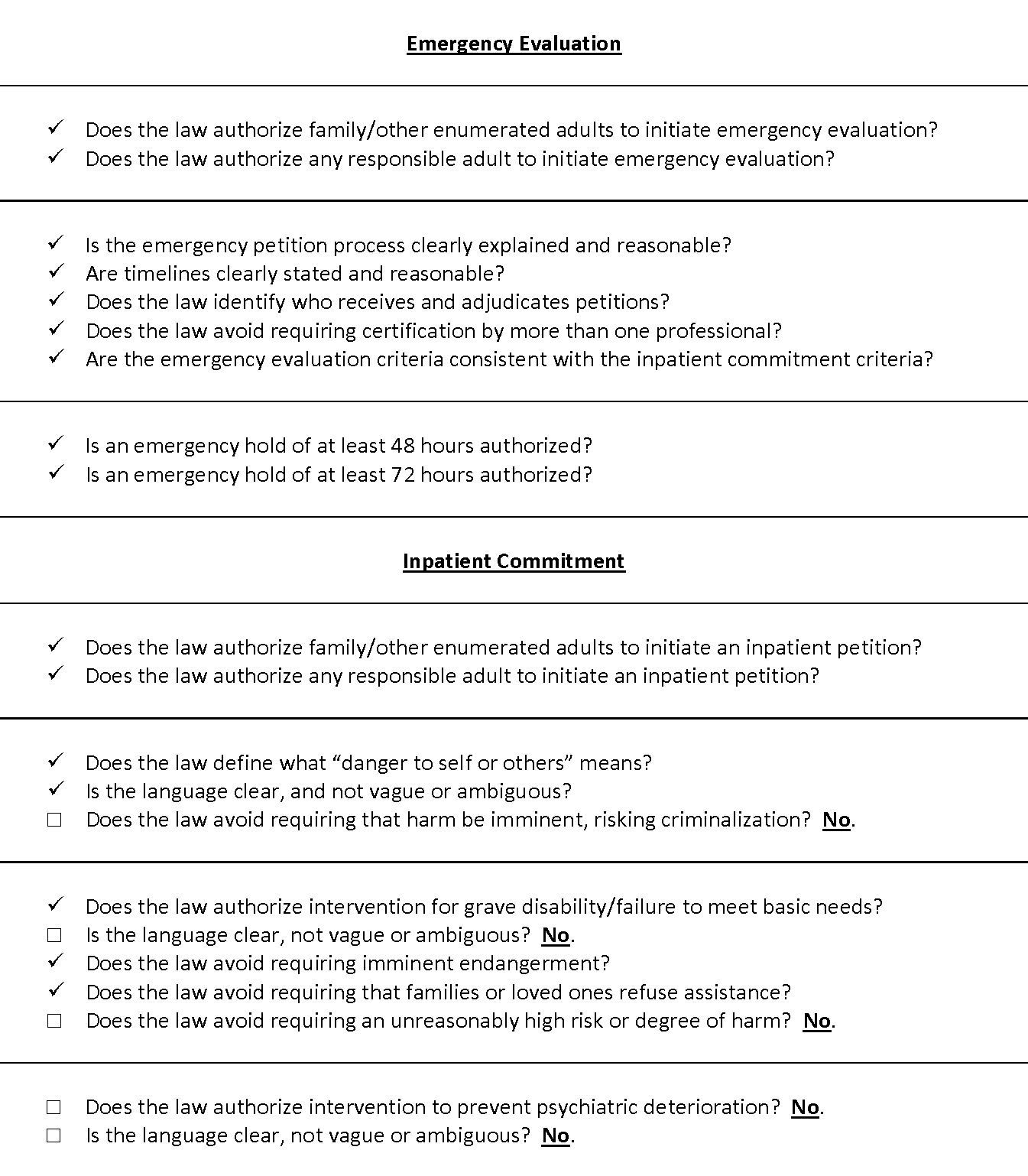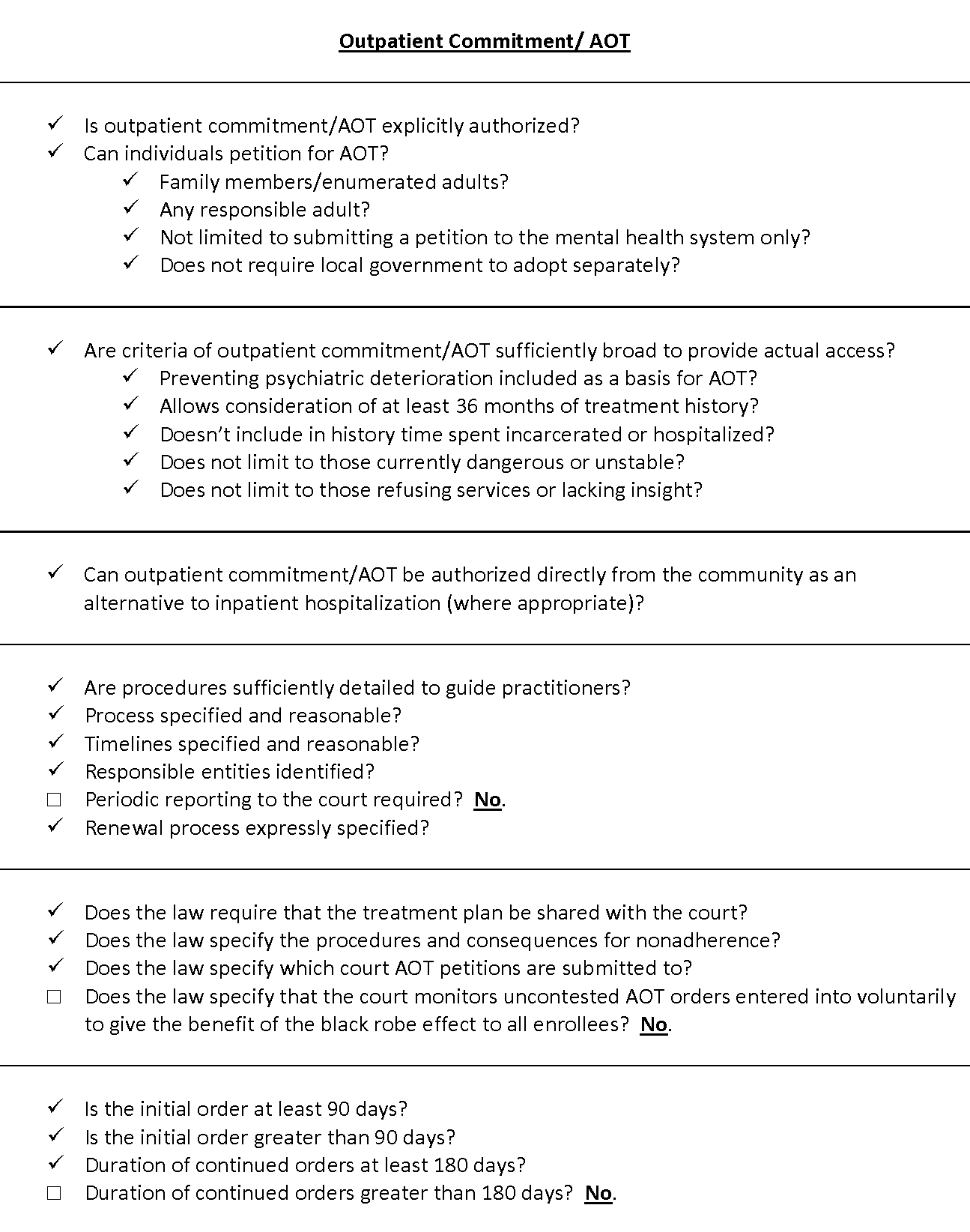Family Resources in Resources in Pennsylvania
- Pennsylvania Department of Human Services Mental Health in PA (dhs.pa.gov) Resources and contacts
- Commonwealth of Pennsylvania Mental Health Resources (pa.gov/guides) Crisis information and resources to find treatment
- Pennsylvania Code: Mental Health Procedures (pacodeandbulletin.gov) Legal provisions for mental health treatment
- NAMI Keystone Pennsylvania (namikeystonepa.org) Support groups, training, information
- Disability Rights Pennsylvania (disabilityrightspa.org) Protection and advocacy for individuals with disabilities
- Homeless Assistance (dhs.pa.gov) Available services and where to get help
- Pennsylvania Inmate Search (waukeganweb.net/pennsylvania) Find someone in prison
- Pennsylvania Bar Association (pabar.org) Legal assistance
How many people in Pennsylvania have SMI?
individuals with severe mental illness.
individuals with SMI who receive treatment in a given year.
of the adult population is estimated living with a SMI in the United States.
State psychiatric hospital beds in Pennsylvania
2023 total beds: 1,348
- Civil beds: 989
- Forensic beds: 359
2023 beds per 100,000 people: 10.7
Click here for more information about state psychiatric hospital beds in Pennsylvania.
A minimum of 50 beds per 100,000 people is considered necessary to provide minimally adequate treatment for individuals with severe mental illness. Pennsylvania fails to meet this minimum standard.
For Additional Information
Data is a powerful tool to advocate for change. Curious about a specific data point in your state? Reach out to us at ORPA@treatmentadvocacycenter.org
Fast Facts on SMI in Pennsylvania
Deinstitutionalization, outdated treatment laws, discriminatory Medicaid funding practices, and the prolonged failure by states to fund their mental health systems drive those in need of care into the criminal justice and corrections systems.
20%
13,473
1,518
9 to 1
2021 Pennsylvania State Mental Health Agency's expenditures
Every state receives block grant funding from the federal government to provide mental health services to their community. Below is some information about how these dollars are spent and compares to other state spending.
$4,712,040,157
10%
$8,247
4.6%
Pennsylvania's Treatment Laws
50 PA. CONS. STAT. ANN. § 7302(a). Emergency examination may be undertaken at a treatment facility upon the certification of a physician stating the need for such examination; or upon a warrant issued by the county administrator authorizing such examination; or without a warrant upon application by a physician or other authorized person who has personally observed conduct showing the need for such examination. 50 P.S. § 7302(a). Whenever a person is severely mentally disabled and in need of immediate treatment, he may be made subject to involuntary emergency examination and treatment. A person is severely mentally disabled when, as a result of mental illness, his capacity to exercise self- control, judgment and discretion in the conduct of his affairs and social relations or to care for his own personal needs is so lessened that he poses a clear and present danger of harm to others or to himself.
50 PA. CONS. STAT. ANN. § 7304(c)(1). Any responsible party may file a petition in the court of common pleas requesting court-ordered involuntary treatment for any person not already in involuntary treatment. 50 PA CONS. STAT. ANN. § 7304(a)(1). A person who is severely mentally disabled and in need of treatment… may be made subject to court-ordered involuntary treatment upon a determination of clear and present danger under section 301(b)(1) (serious bodily harm to others), or section 301(b)(2)(i) (inability to care for himself, creating a danger of death or serious harm to himself), or 301(b)(2)(ii) (attempted suicide), or 301(b)(2)(iii) (self-mutilation)[.] 50 PA. CONS. STAT. ANN. § 7301(b)(1). Clear and present danger to others shall be shown by establishing that within the past 30 days the person has inflicted or attempted to inflict serious bodily harm on another and that there is a reasonable probability that such conduct will be repeated. If, however, the person has been found incompetent to be tried or has been acquitted by reason of lack of criminal responsibility on charges arising from conduct involving infliction of or attempt to inflict substantial bodily harm on another, such 30-day limitation shall not apply so long as an application for examination and treatment is filed within 30 days after the date of such determination or verdict. In such case, a clear and present danger to others may be shown by establishing that the conduct charged in the criminal proceeding did occur, and that there is a reasonable probability that such conduct will be repeated. For the purpose of this section, a clear and present danger of harm to others may be demonstrated by proof that the person has made threats of harm and has committed acts in furtherance of the threat to commit harm. 50 PA. CONS. STAT. ANN. § 7301(b)(2). Clear and present danger to himself shall be shown by establishing that within the past 30 days: (i) the person has acted in such manner as to evidence that he would be unable, without care, supervision and the continued assistance of others, to satisfy his need for nourishment, personal or medical care, shelter, or self-protection and safety, and that there is a reasonable probability that death, serious bodily injury or serious physical debilitation would ensue within 30 days unless adequate treatment were afforded under this act; or (ii) the person has attempted suicide and that there is the reasonable probability of suicide unless adequate treatment is afforded under this act. For the purposes of this subsection, a clear and present danger may be demonstrated by the proof that the person has made threats to commit suicide and has committed acts which are in furtherance of the threat to commit suicide; or (iii) the person has substantially mutilated himself or attempted to mutilate himself substantially and that there is the reasonable probability of mutilation unless adequate treatment is afforded under this act. For the purposes of this subsection, a clear and present danger shall be established by proof that the person has made threats to commit mutilation and has committed acts which are in furtherance of the threat to commit mutilation.

50 PA. CONS. STAT. ANN. § 7304 (c.1) Procedures for initiating assisted outpatient treatment for persons already subject to involuntary treatment.— 1. Petition for assisted outpatient treatment for persons already subject to involuntary treatment under section 301(b)(1) or (2), or persons with mental illness subject to treatment in a forensic facility or a correctional institution who are ready for release may be made by the county administrator or the director of the facility to the court of common pleas. (c.2) Procedures for initiating assisted outpatient treatment for persons not in involuntary treatment.— 1. Any responsible party may file a petition in the court of common pleas requesting assisted outpatient treatment for any person determined under section 301(c) to be in need of assisted outpatient treatment, and who is not already in involuntary treatment, and who is not already in assisted outpatient treatment for whom application could be made under subsection (a). 50 PA CONS. STAT. ANN. § 7304(a)(1). A person who is severely mentally disabled and in need of treatment… may be made subject to court-ordered involuntary treatment … upon determination that [the] person meets the requirements under section 301(c) (determination of need for assisted outpatient treatment). 50 PA. CONS. STAT. ANN. § 7301(c). (1) The need for assisted outpatient treatment shall be shown by establishing by clear and convincing evidence that the person would benefit from assisted outpatient treatment as manifested by evidence of behavior that indicates all of the following: i. The person is unlikely to survive safely in the community without supervision, based on a clinical determination. ii. The person has a history of lack of voluntary adherence to treatment for mental illness and one of the following applies: (A) Within the 12 months prior to the filing of a petition seeking assisted outpatient treatment, the person’s failure to adhere to treatment has been a significant factor in necessitating involuntary inpatient hospitalization or receipt of services in a forensic or other mental health unit of a correctional facility, provided that the 12-month period shall be extended by the length of any hospitalization or incarceration of the person in a correctional institution that occurred within the 12-month period. (B) Within the 48 months prior to the filing of a petition seeking court-ordered assisted outpatient treatment, the person’s failure to adhere to treatment resulted in one or more acts of serious violent behavior toward others or himself or threats of, or attempts at, serious physical harm to others or himself, provided that the 48-month period shall be extended by the length of any hospitalization or incarceration of the person in a correctional institution that occurred within the 48-month period. iii. The person, as a result of the person’s mental illness, is unlikely to voluntarily participate in necessary treatment and the person previously has been offered voluntary treatment services but has not accepted or has refused to participate on a sustained basis in voluntary treatment, provided that voluntary agreement to enter into services by a person during the pendency of a petition for assisted outpatient treatment shall not preclude the court from ordering assisted outpatient treatment for that person if reasonable evidence exists to believe that the person is unlikely to make a voluntary sustained commitment to and remain in a treatment program. iv. Based on the person’s treatment history and current behavior, the person is in need of treatment in order to prevent a relapse or deterioration that would be likely to result in substantial risk of serious harm to the others or himself. (2) An individual who meets only the criteria described in clause (1) shall not be subject to involuntary inpatient hospitalization unless a separate determination is made that the individual poses a clear and present danger in accordance with [applicable law].

Recommended updates to treatment laws
- 1
Amend 50 P.S. §§ 7301(b)(1) and 7301(b)(2) to remove requirement that harm be ‘clear and present’ (imminent) and requirement of unreasonably severe harm
- 2
Amend 50 P.S. § 7301(b)(2)(i) to clarify ambiguity created by requiring a finding on the probability of future dangerousness based exclusively on whether or not certain types of harm have occurred within the past 30 days, without reference to treatment history; remove requirement for unreasonably severe harm to meet criteria for grave disability
- 3
Add psychiatric deterioration criteria or amend grave disability criteria to include it
- 4
Amend 50 P.S. § 7304(c.1) to require periodic reporting to the court
- 5
Amend 50 P.S. § 7305(c) to extend duration of continued outpatient order beyond 180 days
- 6
Adopt express procedures for the court to monitor uncontested AOT orders entered into voluntarily to give the benefit of the black robe effect to all enrollees
